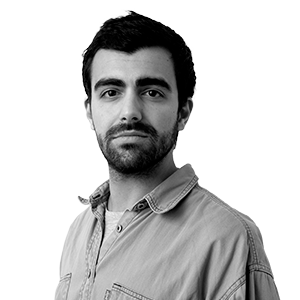Lasers, GPS, and computing: Barcelona will rethink the quantum revolutions
The fourth edition of the City and Science Biennial will be held from November 18 to 23, simultaneously with Madrid and Mexico City.


BarcelonaToday, getting around without Google Maps is unthinkable for many people, as if it were a fifth limb without which we can't go anywhere. The emergence of GPS already had a huge impact and changed the way people do things, as did other inventions such as lasers and transistors. All of these technologies are part of the first quantum revolution, which transformed the world at the beginning of the 20th century. Later, a second quantum revolution took place with quantum computing, communications, and sensors, which reconfigured the economic system and the way we organize ourselves, just as their predecessors did. Therefore, the fourth edition of the City and Science Biennial, which will be held simultaneously in Barcelona, Madrid, and Mexico City from November 18 to 23, aims to rethink these technologies with an eye to the future and address the main scientific challenges of the moment.
The epicenter of activities in Barcelona will be around the future Ciutadella del Conocimiento, one of the nerve centers of research and innovation that will concentrate universities and research centers in the Catalan capital in the coming years. The Born Museum of History of Barcelona will host the bulk of the program, which will include roundtables, art installations, debates, performances, and screenings, although there will also be activities at the Pompeu Fabra University's Ciutadella Campus, the Greenhouse of the Museum of Natural Sciences, and the Convent.
This Wednesday, the Deputy Mayor for Economy, Housing, Finance, and Tourism, Jordi Valls, defended the Biennial's objective as "democratizing knowledge to create free citizens." According to the council, it is one of the "most important scientific culture events held in the city" after four editions. In fact, he praised the success of previous editions, which have made it "a benchmark as a space for reflection, debate, and dissemination." For the past two years, it has been held simultaneously in Barcelona and Madrid, where it is organized by the Círculo de Bellas Artes. This year, there will also be programming in Mexico during the Guadalajara International Book Fair, of which Barcelona is the guest city, from November 29th to December 7th.
Games for the little ones
This year's program will include talks and debates with industry experts, as well as experimental activities designed for young people, as well as art installations and musical performances. In Madrid, quantum gaming workshops and roundtable discussions on gender and science will be held following the publication of the manifesto.Women for quantum,scientific outreach workshops and exhibitions. In addition, there will be art installations and art and science initiatives, such as those by Reiko Yamada, José Manuel Berenger, and Paul Thomas in Barcelona, as well as the Marta Solís exhibition in Madrid.
